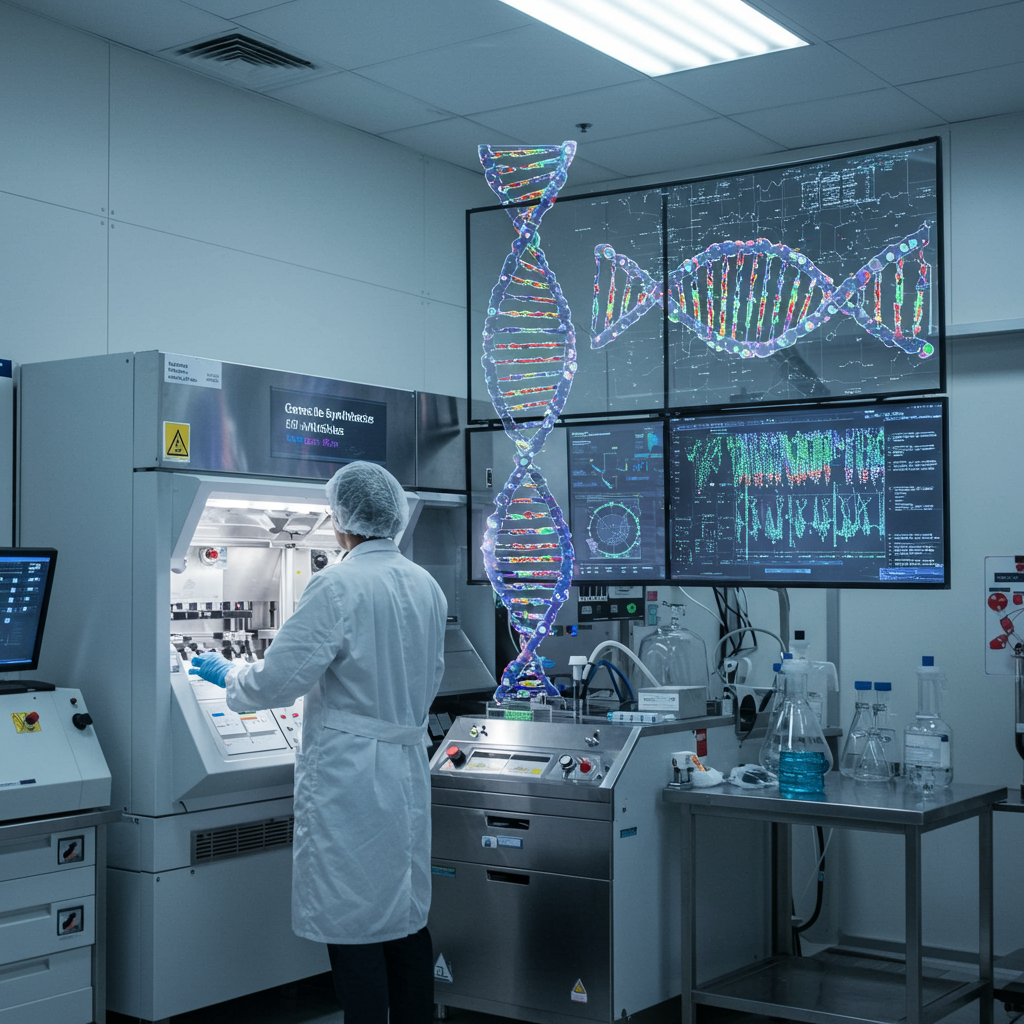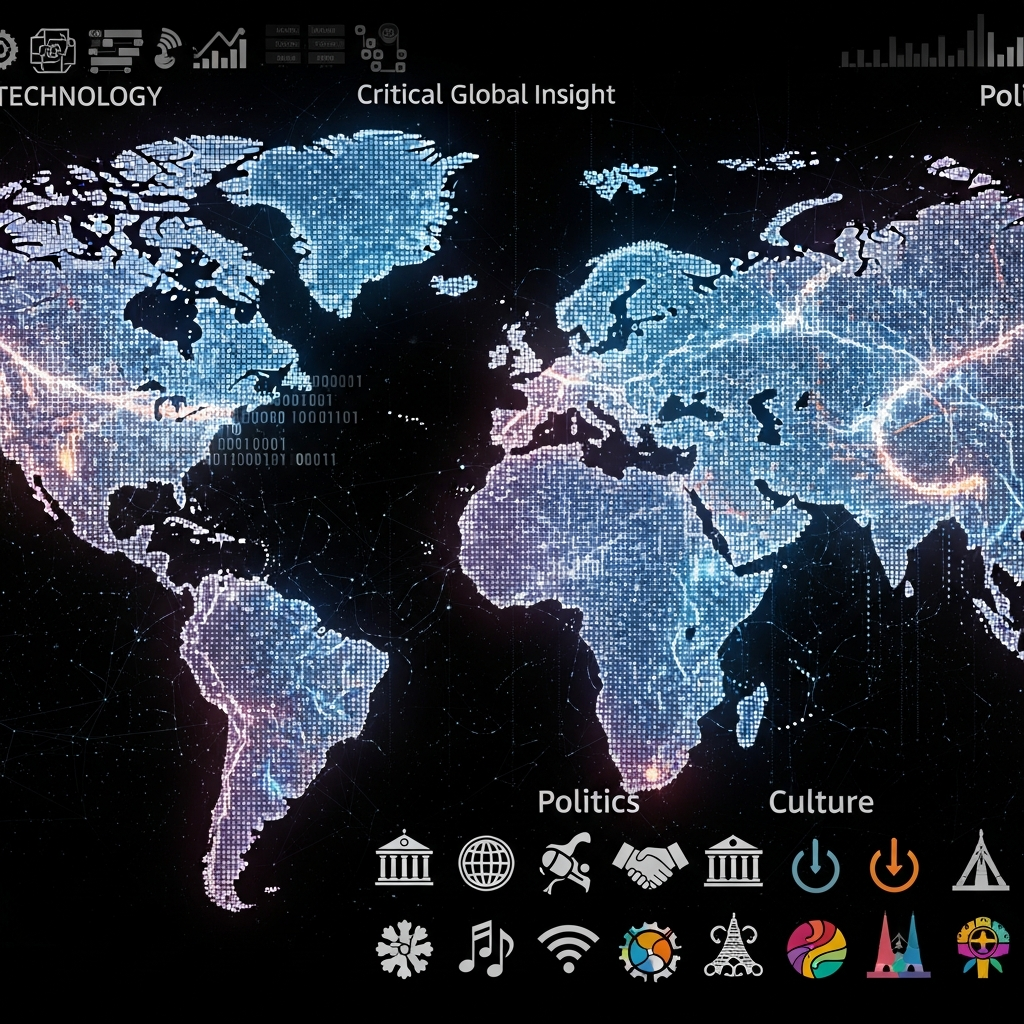A groundbreaking UK project is set to build the ultimate biological blueprint – human DNA – from scratch. This ambitious undertaking, known as the Synthetic Human genome (SynHG) project, marks a pivotal shift from merely reading the genetic code, a feat achieved decades ago, to actively writing it. Led by researchers across multiple top UK universities and backed by significant funding from the Wellcome Trust, this initiative aims to unlock profound secrets about how our DNA truly works and pave the way for revolutionary future medical treatments.
The scale of this challenge is immense. While scientists have successfully synthesized the genome of simpler organisms like the E. coli bacterium, which contains around 4.5 million base pairs (the chemical letters G, T, C, and A that make up DNA), the human genome boasts over 3 billion base pairs. The SynHG project plans to spend the next five years developing the essential tools and expertise needed to construct lengthy segments of human genetic code in the laboratory. These synthesized strands will then be introduced into living cells, starting with human skin cells, to meticulously study their function and operation.
Decoding the “Dark Matter” of Our DNA
For decades, scientists have been able to read the human genome sequence. The first draft was announced 25 years ago, initiating a new era in genetics. Yet, despite knowing the sequence, we still don’t fully understand the purpose of vast portions of our DNA. These mysterious segments are sometimes referred to as the “dark matter of the genome.”
Dr. Julian Sale, a group leader at the MRC’s Laboratory of Molecular Biology (LMB), emphasizes this point, noting that the human genome is “more than just a set of genes on a string.” The core scientific motivation behind synthesizing DNA is the belief that by successfully building genomes piece by piece, researchers can gain a complete and fundamental understanding of how every part of the code functions, moving beyond simple observation or limited editing.
Potential Medical Breakthroughs on the Horizon
The insights gleaned from synthesizing human genomes hold tremendous promise for developing radical new therapies to combat a wide range of diseases. Professor Jason Chin, leading the project at the LMB in Cambridge and the Generative Biology Institute at Ellison Institute of Technology/University of Oxford, suggests the information gained “may be directly useful in generating treatments for almost any disease.”
Among the exciting possibilities are engineered living cells designed to resist specific threats. These could include cells resistant to immune system attacks or particular viruses. Such specially crafted cells might potentially be transplanted into patients suffering from autoimmune diseases or those with severe liver damage caused by chronic viral infections, offering entirely new treatment pathways.
Beyond cellular therapies, the technology could lead to creating synthetic versions of mitochondria, the powerhouses within our cells. This could provide a groundbreaking method to prevent mothers carrying mitochondrial diseases from passing them on to their children, potentially simplifying current procedures like IVF by eliminating the need for a donor.
Collaboration and Foundational Goals
The SynHG project is a significant collaborative effort involving teams from several leading UK institutions: the universities of Cambridge, Kent, Manchester, Oxford, and Imperial College London. This brings together diverse expertise needed for such a complex undertaking.
While the ultimate goal of synthesizing a full human genome is ambitious and could take decades, the initial focus over the next five years is squarely on building the necessary foundational tools and technologies. A challenging near-term goal is the synthetic construction of a complete human chromosome within the next five to ten years. This single chromosome would represent about two percent of total human DNA but would serve as a critical proof of concept, accelerating future technological advancements. Michael Dunn, Director of Discovery Research at Wellcome, views this project as being at the absolute forefront of scientific inquiry, poised to answer currently unimagined questions about health and disease.
Addressing Ethical and Societal Implications Head-On
Recognizing the profound technical and ethical complexities inherent in creating synthetic human genomes, the SynHG project includes a dedicated, parallel research effort focused specifically on the social and ethical issues. This component, named ‘Care-full Synthesis,’ is led by Professor Joy Zhang at the University of Kent and is embedded within the project from its very beginning.
The inclusion of this robust social science program is crucial. As Dr. Julian Sale puts it, even though tangible therapies might be some way off, “this is the time to start the discussion on what we want to see and what we don’t want to see.” The project aims to foster a new paradigm for accountable scientific practice by actively exploring diverse global perspectives.
Navigating Potential Risks and Controversies
The potential benefits are immense, but so too are the ethical concerns and potential risks. Professor Iain Brassington, who studies genetic technology ethics at the University of Manchester, welcomes the project but acknowledges the potential for problems.
One concern involves environmental risks. The technology could potentially be used to create synthetic bacteria engineered for tasks like digesting petrochemicals for environmental cleanup (e.g., breaking down plastic waste or clearing oil spills). While potentially useful, the risk of such organisms escaping into the environment is significant and could be “catastrophic,” Brassington warns.
The spectre of “designer babies” remains a prominent concern. Critics worry the technology could eventually allow parents to select or enhance traits in their children before birth, raising complex questions about genetic control and societal equity. Other more speculative concerns include individuals “licensing” parts of their genome or situations where a child could be conceived using a synthetic DNA replica with no cellular contribution from the ‘genetic’ parent. While Brassington finds some of these scenarios “fairly far-fetched,” the debate highlights the need for careful consideration and regulation.
Beyond individual choices, there are fears the technology could be misused on a larger scale. Critics like Dr. Pat Thomas from Beyond GM worry the science could be “repurposed to do harm and for warfare.” Professor Bill Earnshaw, known for designing artificial human chromosomes, echoed these fears, warning of the potential for biological weapons, enhanced humans, or even creatures incorporating human DNA. He grimly notes that “the genie is out of the bottle” and doubts the ability to stop determined organizations with the necessary equipment from synthesizing whatever they choose. The issue of commercialization and ownership of synthetic biological materials also raises complex questions.
Wellcome’s decision to fund the project, despite the controversy, was deliberate. As Dr. Tom Collins of the Wellcome Trust explained, the decision was based on considering “the cost of inaction.” Believing the technology “is going to be developed one day” regardless, Wellcome chose to support it now to ensure it is developed “in as responsible a way as possible” and that the ethical and moral questions are confronted “in as upfront way as possible.” The ‘Care-full Synthesis’ program explicitly addresses the historical lack of diverse genomic representation in research, planning global studies to incorporate perspectives from Africa, Asia, and the Americas to ensure benefits are shared equitably.
The Next Frontier in Genetic Engineering
The Synthetic Human Genome project represents the next major step following the ability to sequence and edit DNA. By building DNA from the ground up, researchers gain unprecedented control to test fundamental theories about genetic function in ways limited by simply modifying existing DNA in living systems. This capability is expected to significantly alter the landscape of biotechnology and medicine.
Initial work will remain within the confines of laboratory settings, restricted to test tubes and petri dishes, with no immediate plans to create synthetic life. However, the project acknowledges that its foundational tools and knowledge could potentially be adapted by others, underscoring the critical need for ongoing public engagement and robust ethical frameworks alongside scientific progress. This bold venture into synthesizing our genetic code holds the key to unlocking deeper biological mysteries and could transform human health, but requires navigating a complex path of scientific possibility and societal responsibility.
Frequently Asked Questions
What is the UK Synthetic Human Genome Project and its goal?
The Synthetic Human Genome (SynHG) project is a major UK research initiative aiming to build parts, and eventually potentially all, of the human genetic code from scratch. Led by Professor Jason Chin and funded by Wellcome, the project seeks to develop tools for synthesizing long DNA strands. The primary goals are to gain a deeper understanding of how human DNA functions, particularly the lesser-known parts, and to pave the way for developing radical new medical therapies and treatments for diseases.
Which UK universities are collaborating on the SynHG project?
The Synthetic Human Genome (SynHG) project is a collaborative effort involving several leading academic institutions across the United Kingdom. The universities participating in this ambitious research initiative are the University of Cambridge, the University of Kent, the University of Manchester, the University of Oxford, and Imperial College London. This brings together diverse expertise from genetics, molecular biology, bioethics, and social sciences.
What ethical concerns does synthesizing the human genome raise?
Synthesizing the human genome raises significant ethical concerns due to the potential for misuse. These include the environmental risks posed by synthetic organisms (like engineered bacteria escaping labs), complex questions around potential “designer babies” and altering human traits, concerns about creating biological weapons, issues of data and biological material ownership, and the need to ensure equitable access to any future benefits across diverse global populations. The project includes a dedicated program, ‘Care-full Synthesis,’ to explore these issues proactively.
Word Count Check: ~1170 words




